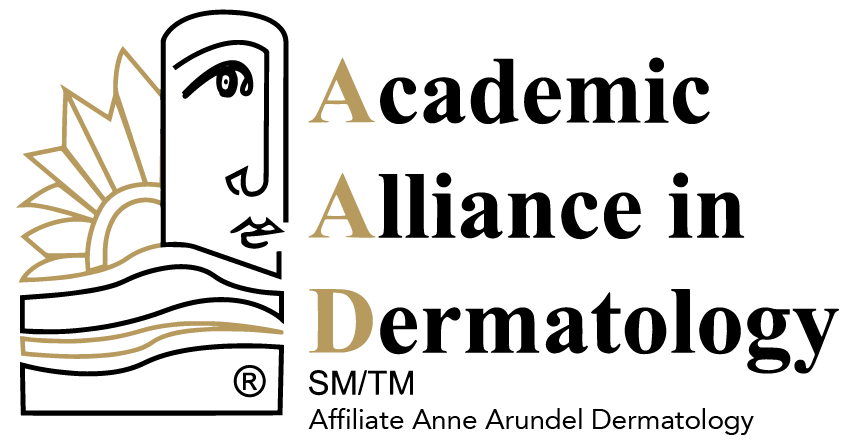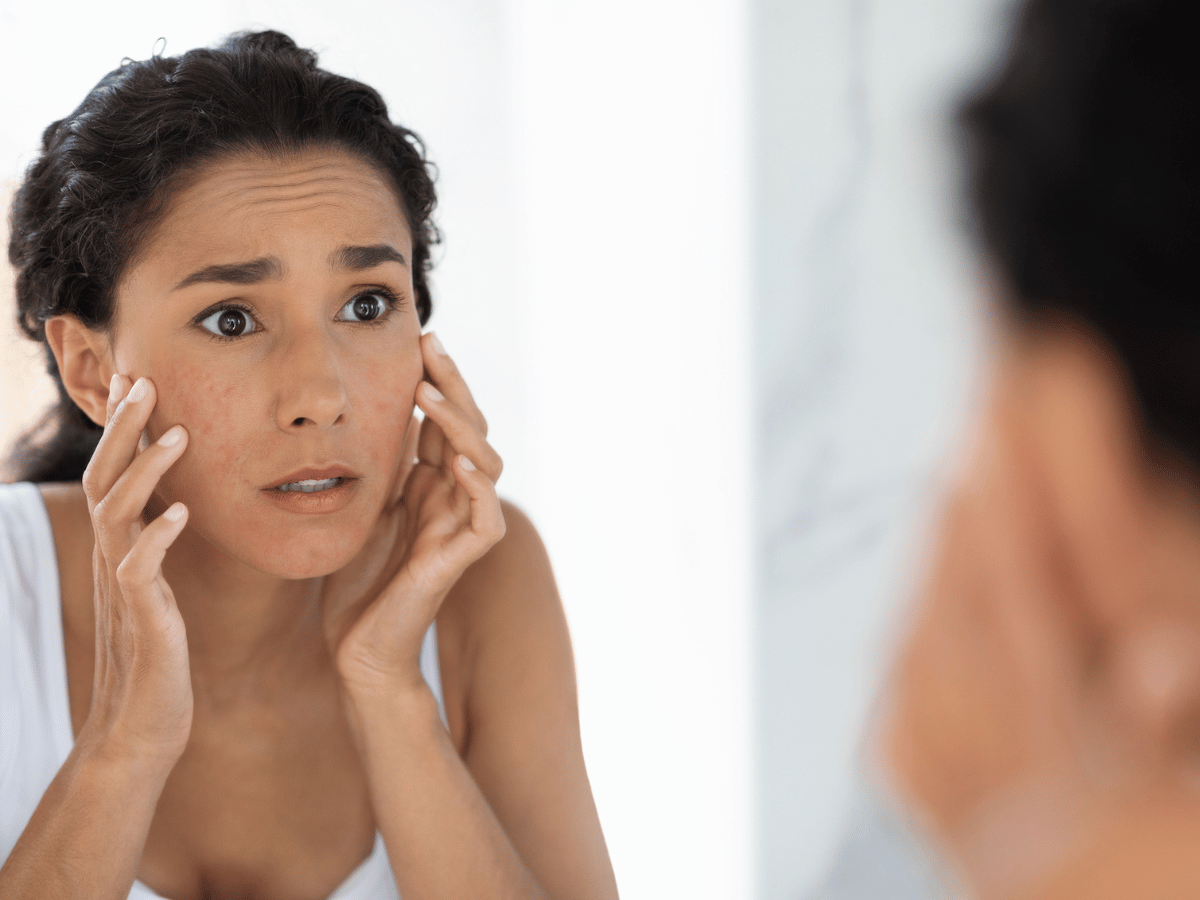What Is Acne?
Acne is one of the most common skin conditions in the United States. While it’s often associated with teenagers, acne doesn’t always disappear once you reach adulthood. It affects people of all ages, genders and skin colors.
At Academic Alliance in Dermatology, our highly trained and experienced providers specialize in both medical and aesthetic treatments for all types of acne, from mild to severe. Our goal is to help you achieve clear, healthy skin.
TYPES
Blackheads:
Named after the color they produce, blackheads contain oil and dead skin cells. They are open to the surface, and the reaction of oil to air causes the black color.
Whiteheads:
Whiteheads are similar to blackheads, but they appear under the skin as a white or yellowish bump. They develop when oil and skin cells clog pores, preventing them from opening.
Papules:
Papules are small red, inflamed bumps that feel tender to the touch.
Pustules:
Pustules are similar to papules but contain a yellowish center of pus and bacteria.
CAUSES
An overproduction of oil and the buildup of bacteria in the pores cause acne. Acne tends to affect the face, chest, neck and shoulders because these areas contain more oil glands than other parts of the body. They are also more exposed to environmental triggers like the sun, dirt and pollution.
RISK FACTORS
Certain medications:
Drugs that contain lithium, testosterone, or corticosteroids can trigger acne.
Diet:
Eating a diet high in sugar and processed foods may increase your risk of acne.
Hormones:
Fluctuating hormones during puberty, pregnancy, or menopause can lead to an increase in oil production, which can lead to acne outbreaks.
Stress:
Stress can cause changes to hormone levels in the body, leading to an increase in oil production.
Certain makeup and skincare products:
Using comedogenic (pore-clogging) products can sometimes block pores and lead to breakouts.
SYMPTOMS
Acne is not just pimples. A person who has acne can have any of these blemishes:
- Blackheads (Open comedones)
- Whiteheads (Closed comedones)
- Papules – Small pink bumps that may be tender to touch
- Pustules – Blockages of the pores and sebaceous glands that have become inflamed
- Cysts – Deep, inflamed, pus-filled lumps
- Nodules – Large, painful, solid lumps that are lodged deep in the skin
- Excessive oil
Acne can cause more than blemishes. Studies show that people who have acne can have:
- Low self-esteem
- Depression
- Dark spots on the skin
- Permanent scars
More About The Treatment Options
Aesthetic Acne Treatments
Chemical Peels:
Chemical peels use acid solutions to exfoliate the upper layers of skin to reduce the appearance of acne.
Light and laser therapies:
Light and laser treatments help reduce inflammation, kill bacteria, and improve the overall texture of your skin.
Microneedling:
Microneedling uses tiny needles to create micro-injuries in the skin that can stimulate collagen production, unclog pores, and reduce breakouts.
Medical Acne Treatments
Retinoids:
Retinoids are topical vitamin A derivatives that help reduce inflammation and oil production in the skin.
Antibiotics:
Oral and topical antibiotics help reduce bacteria in the skin, alleviating breakouts.
Salicylic acid:
Salicylic acid is a gentle exfoliant that helps unclog pores and reduce inflammation.
Dapsone:
This topical gel is best for inflammatory acne and may be applied twice daily or as recommended by your provider.
FAQs
Do you treat acne?
Yes, this is one of the most common skin issues we deal with. We treat acne both medically and aesthetically. A consultation with one of our dermatologists is the first step to determine the best course of action. Acne is not only for teenagers, but can affect any age group.
How do I know when I need a dermatologist?
Although almost 100% of children between 12 and 17 get some form of acne, you should seek a doctor’s care if you feel any of the below statement fits your situation:
- My acne makes me shy.
- I am embarrassed by my acne.
- My outlook on life is less optimistic since I developed acne.
- None of the over-the-counter products and/or remedies l’ve tried have worked.
- I am beginning to see scars after acne lesions clear.
- I have painful, pus-filled lesions in addition to blackheads and whiteheads and reddened spots on my skin.
- I have dark skin, and a patch that is darker than my skin appears when an acne lesion clears.
Can acne be cured/cleaned up?
With new technologies and new products, almost every case of acne can be resolved. In addition, you can work with your dermatologist or aesthetician to develop/create a regime to prevent further outbreaks.
Is acne treatment just for cosmetic reasons?
No. Although the acne itself poses no threat to a person’s physical health, acne can cause permanent scarring. The appearance of the acne and acne scarring can affect the way a person feels about himself or herself. With significant medical and non-medical advancements, most acne can be cleared up, so it makes sense to explore all options available.
How do you treat acne scars?
We offer several treatment options to reduce the appearance of acne scars. Options for skin resurfacing may include fractional laser skin resurfacing, micro needling, chemical peels, and microdermabrasion.
Visit Academic Alliance in Dermatology
Our team provides thoughtful, expert care for all your skin health needs. We are proud to offer the most advanced general, surgical and cosmetic dermatological services throughout Florida’s West Coast. Your best skin awaits.

